HMD 2023
12 workshops held over 6 days for over 1000 local school, college and university students.

Survivor Susan Pollack 92 years
I looked at the sky and remembered there was a whole world out there and so never lost hope.
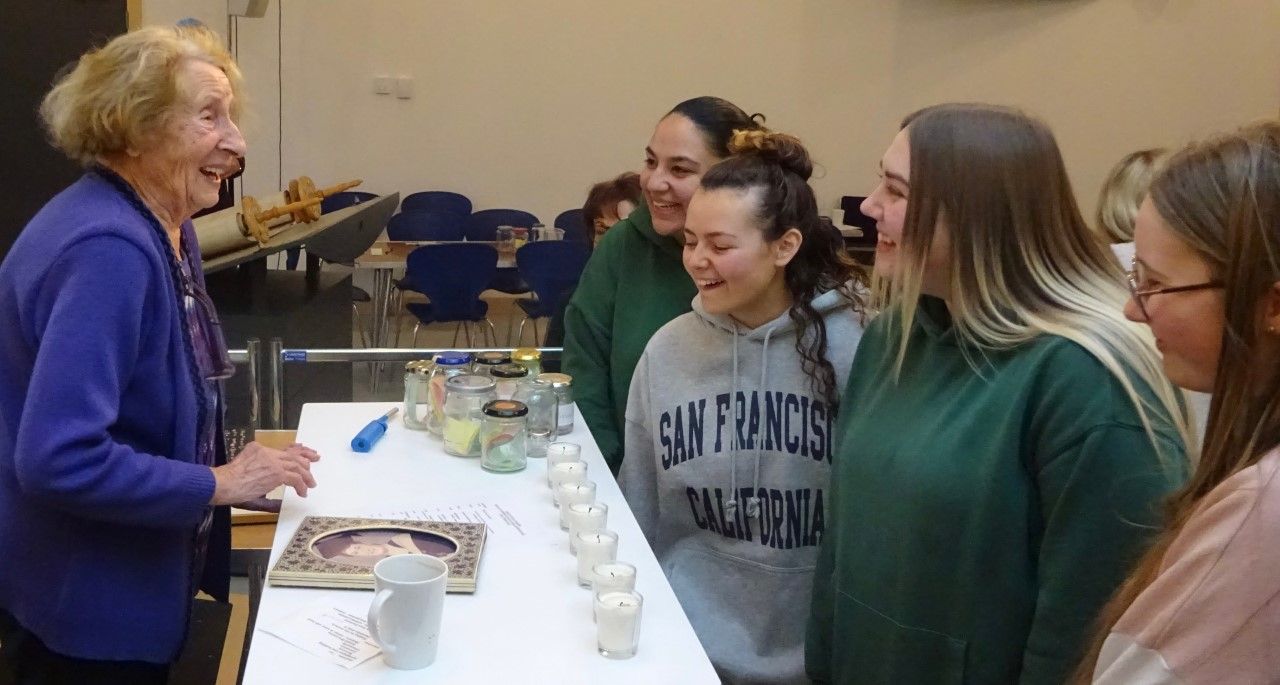

You must live a satisfied life – one where you are doing something to help others.
My faith has always been important its always taught me how to behave towards others.

Survivor Irene Kurer 92 years
I remember on my first day of school feeling lost as a child refugee, not knowing the culture and language of this country, but I was determined day by day to learn a bit more, and so I did!

Survivor Joan Salter 83 years
My past, in a sense, was wiped out and so I continue to speak out against the language of hatred for as long as I can.

Survivor Elsa Shamash 95 years
I’m still volunteering for a refugee organisation. I work with Afghanis, Iranians, and many people from different African countries. I do it because I want to show YOU to how be tolerant. Tolerance is the most important thing in this life


Survivor John Hajdu 86 years
A man who hardly knew us, hid us, I’ll never forget that he risked his life for people he hardly knew.

A student from Finchley Catholic High School asked ‘At what point in your life did you feel most lost?’
The feeling lost goes on and on. I was a young boy when this happened and so just got on with it, but I had no childhood, and in a way, I was always lost.

My mother although she survived, never recovered from the trauma. She could never talk about it. But I now feel I should have asked more questions. For me writing about it and talking about it began to take the weight off my shoulders.
Survivor Mala Tribich 92 years
I feel that it is my duty to speak for all those who cannot speak for themselves and tell what happened in those dark days in Europe. By speaking out, it is my greatest hope that something positive will be handed to the future generation.

Survivor Peter Lantos 83 years
Bergen-Belsen was the ultimate test of survival, the worst and the best event of my life: the best because, like a survivor of an air crash, I seem to have walked away unscathed. I gathered strength from the belief that nothing in my subsequent life could match our experience there…I found true compensation for the evil of the past in the help, kindness and understanding of many people along my way.

Survivor Eva Clarke 77 years
Just think about all the genocide since, the only way we can counteract all these things is through education.

Survivor Gerald Granston 90 years
I am a dinosaur, I am extinct. You are the future – if you don’t fight against prejudice, this country is doomed.

After hearing survivors’ stories, students learnt the story of Irene Sendler who saved over 2,500 children from the Warsaw ghetto. Her parents had taught her to always help those in danger, and to never be a bystander in the face of injustice.
The students were asked ‘why did she choose small young children to save?’
Children could hide easier; they could be concealed, and they’d be harder for the Nazis to track down.
Small children can grow and then have children of their own, so it was like she was saving more than one generation.
They have their whole future ahead of them.
Small children wouldn’t remember and give away secrets which would put them and their rescuers in danger.
Irene Sendler, recognising the importance of human identity, kept a record of the names of the children she saved, and buried those names in jars.
Participants had the opportunity to create a story in a glass jar around one person.
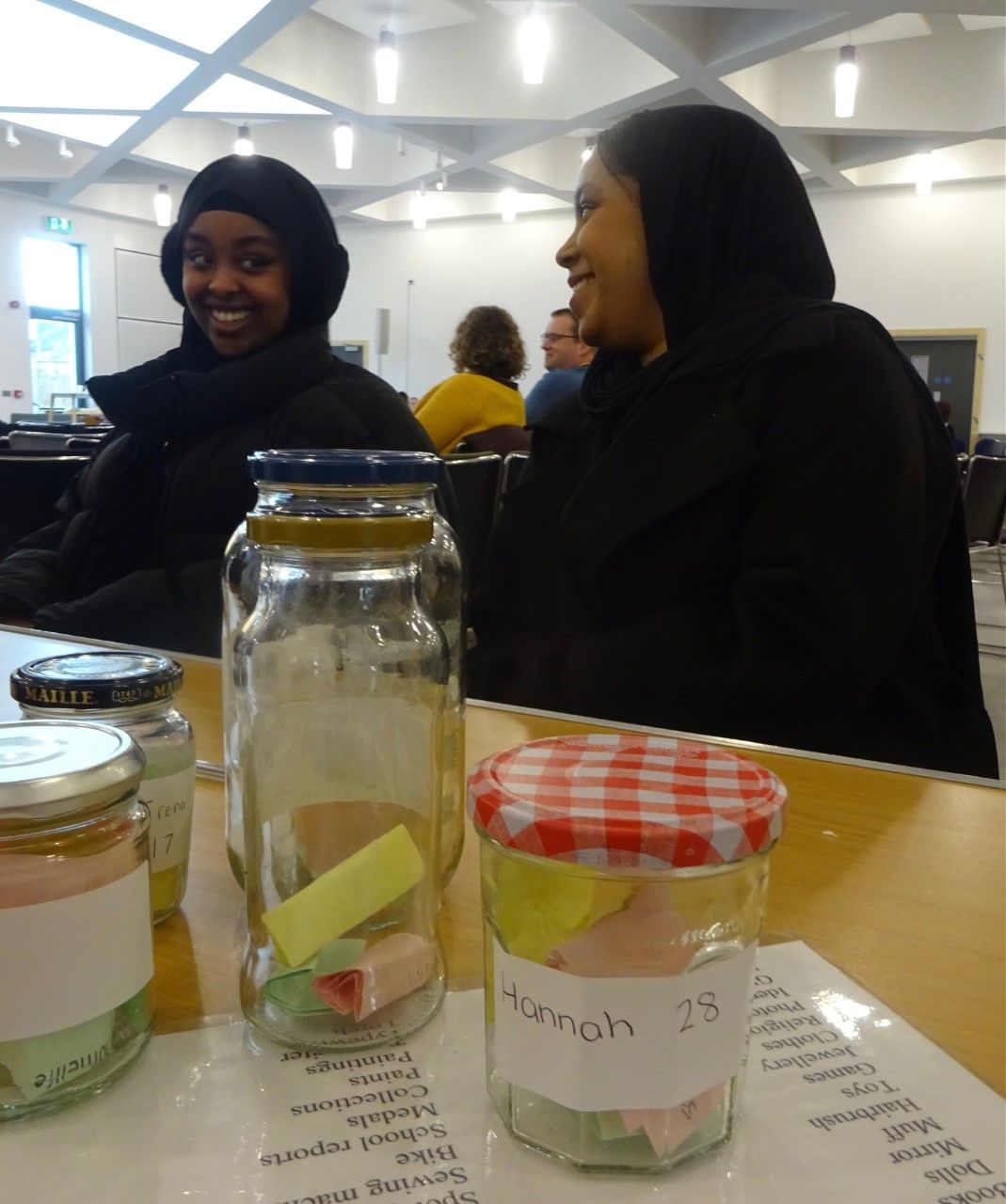

We all put a lid on our jars - you can choose whether you talk about what’s inside you or not.
Some of the jars have label’s, some are completely clear. This can represent how some can talk about what’s happened to them and some people cannot
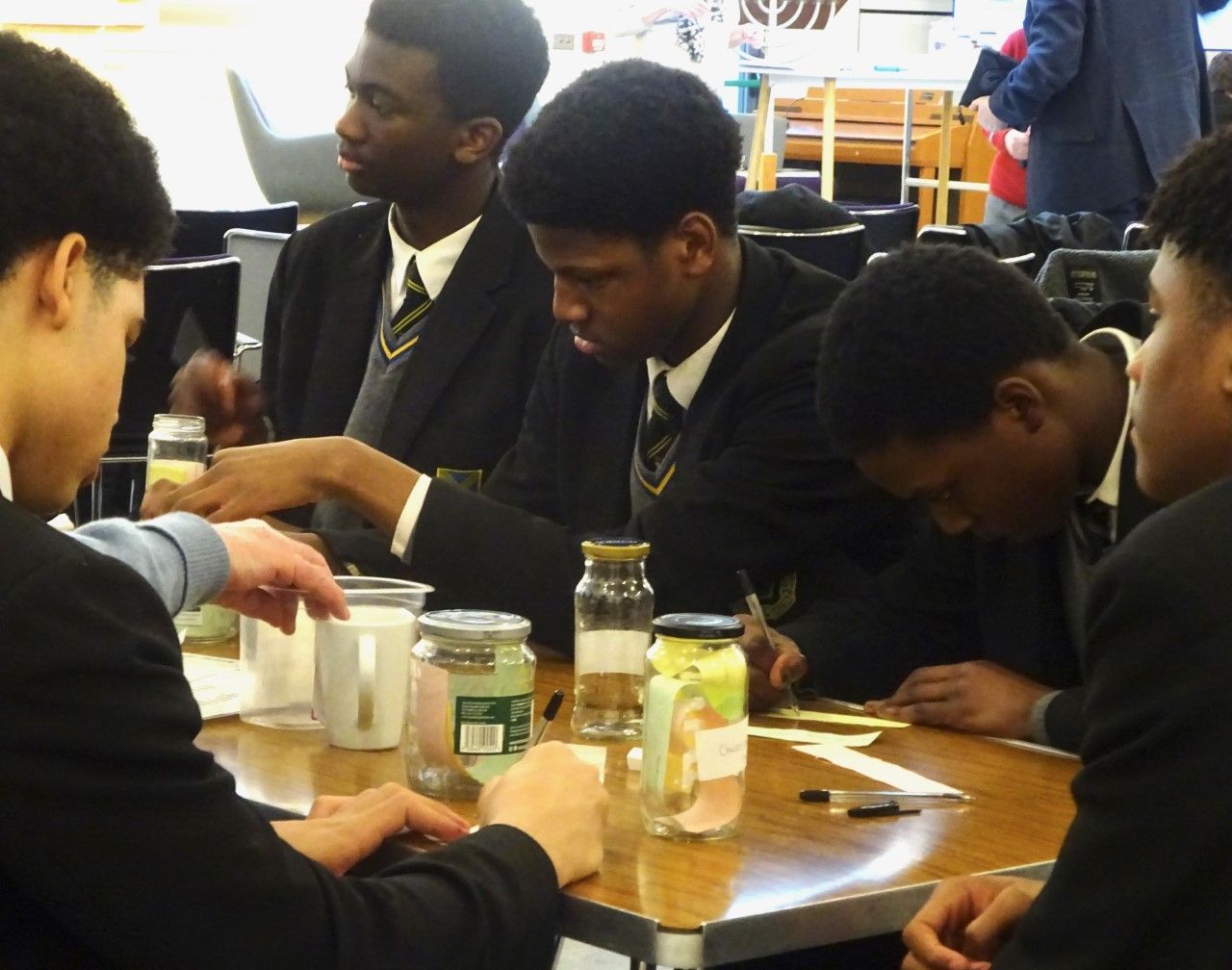
All the contents of the jars are slightly different they vary like people, making everyone unique.

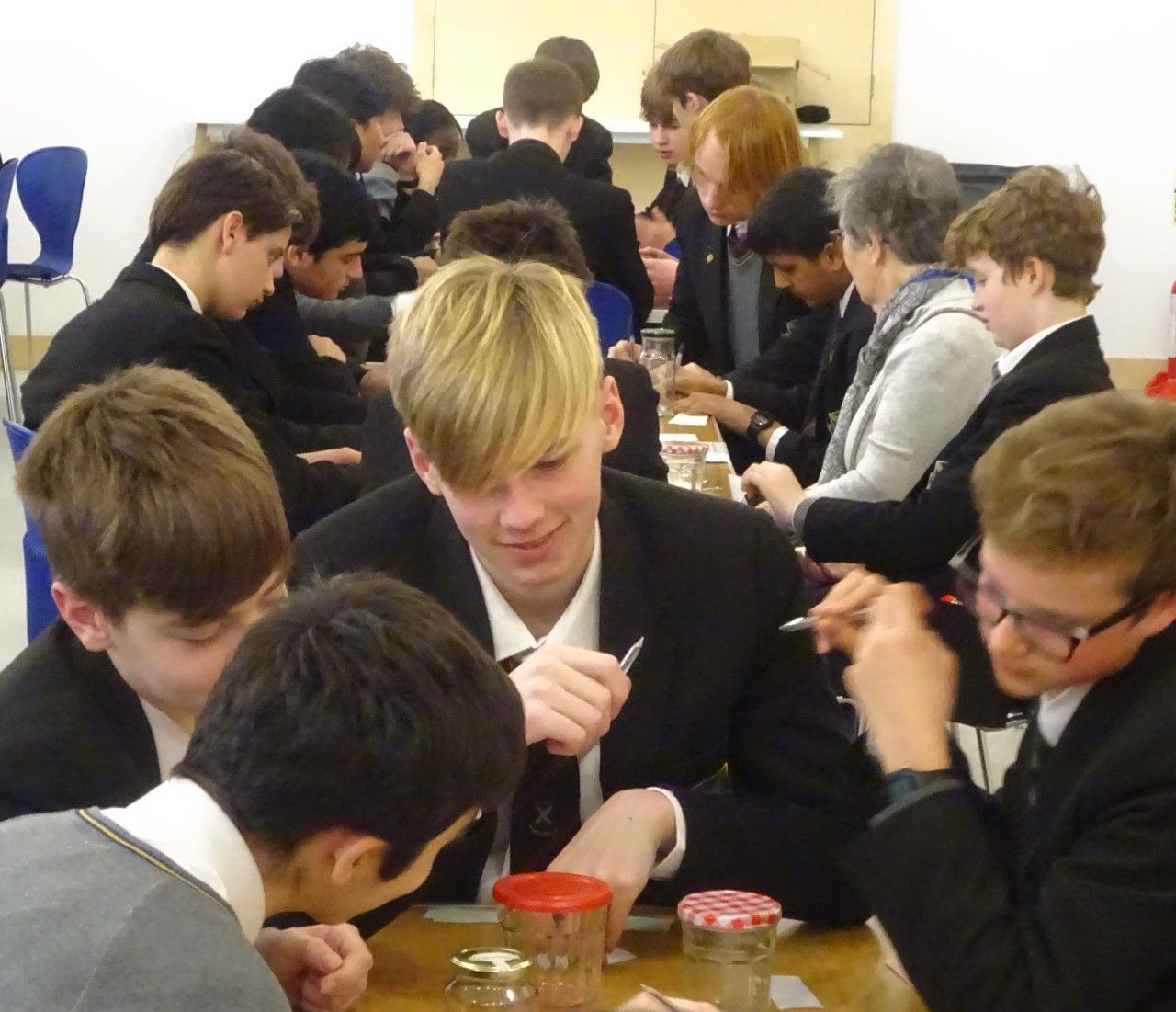
All the jars are made from the same thing – glass and tin, which could represent that all people are equally human. They are fragile but strong at the same time.
People’s circumstances can be the same but people have different wishes and stories, and yet they are united by experience.
After lighting candles, we stood together and remembered.


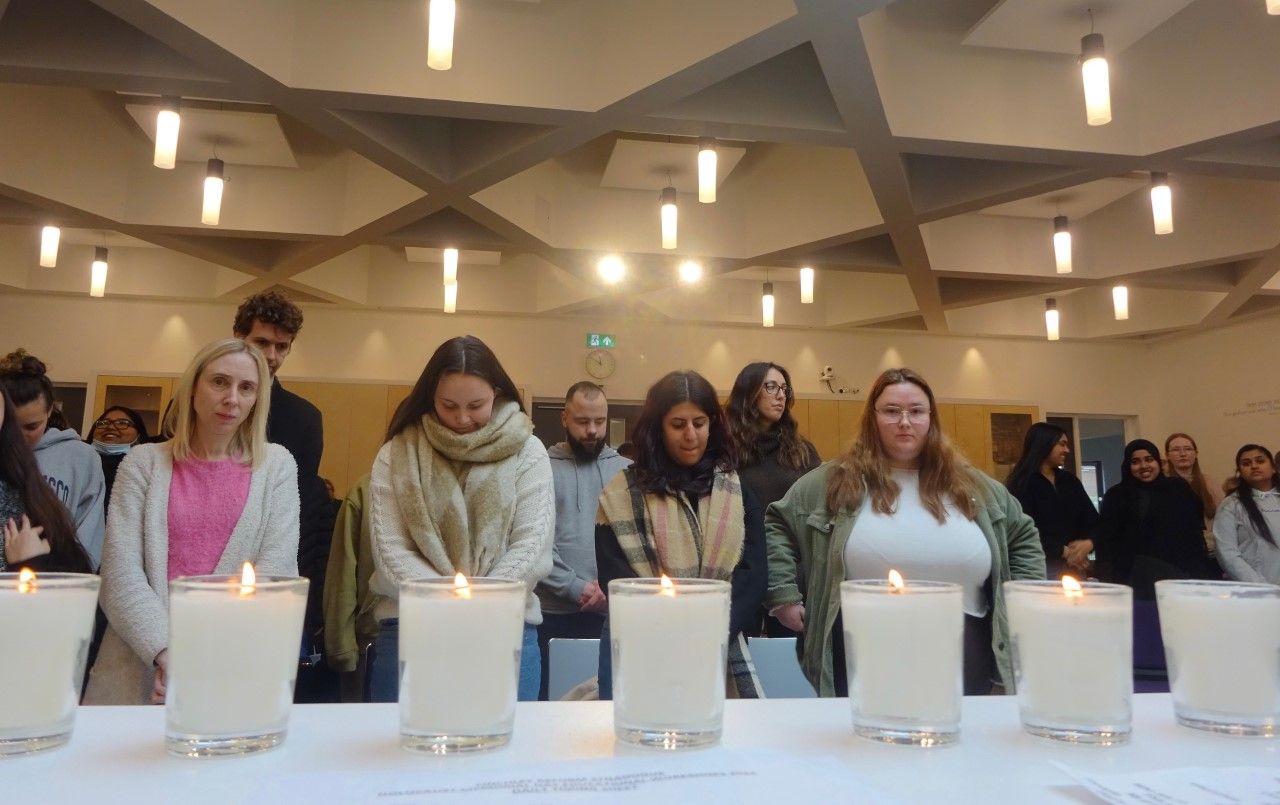

The Mayor of Barnet - Alison Moore
Parallels were drawn today. It’s important to think about what The Holocaust meant to so many and what it means to us today.
We are so lucky to hear first-hand testimony. Hearing people’s stories is always part of a journey, a journey of us growing as people.
Standing up to prejudice is what we can always do as ordinary people.
Principle Woodhouse College – Sugra Alibhai
This year’s theme of ‘ordinary people’ is a moving one. Ordinary people were persecuted, ordinary people let genocide happen, ordinary people actively perpetrated genocide, and ordinary brave people rescued others.
Head of History, Classics, Assistant Headteacher Finchley Catholic High School – Gerrard Crosby
You should feel privileged hearing a survivor’s voice, I really hope you take from his experience. He represents the lives beyond the six million of those that survived but also the suffering of the generations that followed. He achieved so much, coming from such suffering, great things that made a difference to others. The survivors were the lucky ones but you, you are the blessed ones.
You need to take this forward; you are the flame of your generation.
Senior Lecturer in Primary Education, Middlesex University – Claire Harding
Students and tutors got so much out this wonderful, important visit and it was a real privilege to bring them. Thank you to all at FRS for making it possible.
Executive Principal, Wren Academy – Gavin Smith
Our annual visit to the synagogue is one of the most important educational opportunities which Wren students experience whilst in the school. We are very grateful for all that you and your volunteers do to make the visit so insightful and such an important life lesson. Students are always very positive about what they have learnt, and often talk about how they have been challenged by the activities and the testimonies of those that present.
I look forward to many more generations of Wren students being able to benefit from our continued association.
Secretary, Wightman Road Mosque – Bibi Khan
I attended a workshop at the Finchley Reform Synagogue and thought the whole presentation was so moving, inspirational and educational. All attending were absolutely engaged in learning and finding out about this significant event.
